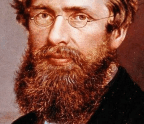The television age
Sep 01, 2022
5 minutes

“In the hands of the BBC, television finally had the backing it needed after a decade spent struggling to get off the ground”
For the first 14 years of its life, the BBC had been synonymous with radio. But on 2 November 1936, the corporation launched the world’s first regular “high-definition” television service. And although it would take more than two decades for this new medium to become a mass social phenomenon, the meaning of the term “broadcasting” changed almost overnight. The BBC was now on the path of becoming supplier to the nation not just of sound but of sound and vision.
Shortly after 3pm at the Alexandra Palace studios on the slopes of Muswell Hill, the BBC Television Orchestra began to play. The musical comedy star Adele Dixon then stepped out before the cameras to sing some freshly minted
You’re reading a preview, subscribe to read more.
Start your free 30 days



